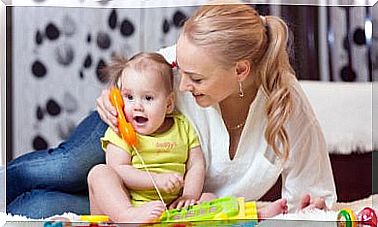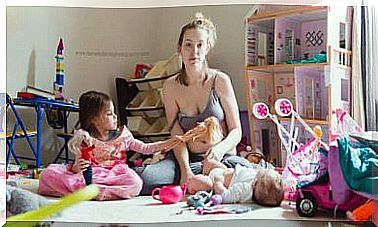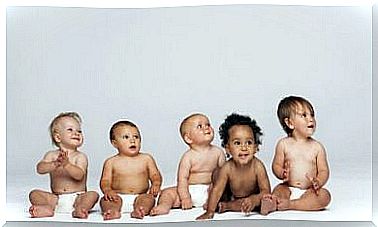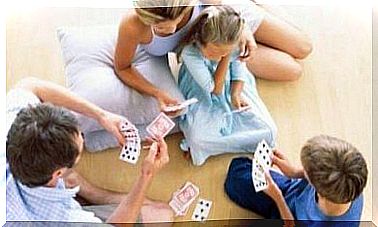Why Do Children Bite
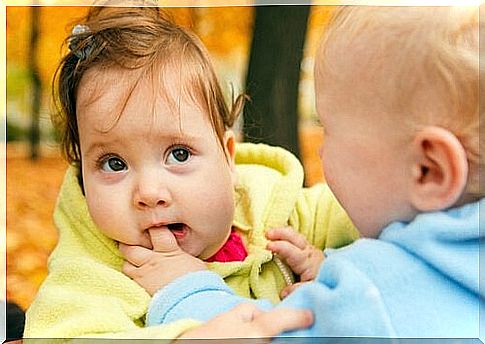
Many parents wonder why children bite. Biting is a common habit that can occur in children between the ages of 1 and 3 for a variety of reasons.
As the teeth grow, babies need to calm their gums. Lacking adult self-control, babies can want to put almost anything in their mouth and bite on it.
Likewise, children between the ages of 1 and 3 show this behavior when they start socializing. But why do children bite other people? Usually this is a way to get attention or a toy.
They can also bite when they’re nervous or frustrated, for example in the event of a radical change in their life. This habit usually goes away when kids start developing their communication skills in kindergarten.
Of course, there can be more serious reasons for biting, such as deeper emotional problems. Therefore, we should watch the child closely to see the reason for their behavior.
Below we talk about some of the main reasons kids bite.

5 reasons why kids bite
According to studies by the American National Association for the Education of Young Children, there are 5 main reasons young children bite.
Exploration
Babies can develop the habit of biting from an early age due to their natural curiosity for the objects around them. As mentioned earlier, mouth sensitivity develops at an early age.
Babies and toddlers use all of their senses to learn about the world around them. It also means they can bite another child’s hand. When that happens, it should be enough to simply tell your child not to do this again.
attention
One reason kids bite is to get adult and peer attention. In this case, it is very important to explain to them that this is wrong and that it will hurt others.
Make it clear to them not to do it again. Teach your children to use words to express themselves without hurting others.
Self defense
If your child starts getting to know other children in unfamiliar surroundings, they may try to bite others.
Often times, the child will see biting as a form of self-defense against other children. If so, you can reassure them that they are safe and that no one is trying to hurt them.
control
Children have a strong need for autonomy and control. When they notice the effects of biting on others around them, they can begin to feel stronger and superior.
To correct this behavior, we should make sure to teach good behavior, such as sharing toys, saying “thank you”, and being friendly with one another. Teach your child that they can be respected by their peers without using violence.
change
Another reason children bite is because of an underlying emotional problem or a significant change in the child’s life. For example, when a new little brother or sister joins the family.
Other common reasons are moves or new children in kindergarten. Biting is a way for the child to get attention and express their feelings about the situation.
What can you do with this behavior?
Telling a child not to do something doesn’t mean they will understand what is right and what is wrong. As they grow up, children copy the behavior patterns from their environment.
Because of this, it is important that parents set a good example. Show your child how to be good.
Communicate to solve problems, take turns, ask to borrow toys, give hugs, be nice, and respect others – all of these behaviors and attitudes can be learned from a good role model.
If your child is doing well, give them praise so that they understand that what they’re doing is good. For example, you can praise your child for playing peacefully with a friend.
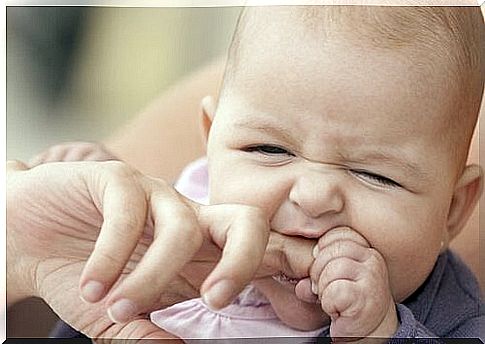
How to stop children from biting
The first thing to do is watch your child and find out why they are biting. This is behavior that cannot go away overnight, so patience and understanding are the keys to long-term success.
What can we do to prevent children from biting?
- Think about when and why your child bites.
- Don’t let your child out of your sight when it comes to other children. Your presence will calm it down.
- If they bite someone, stay calm. Explain to your child that what they did was wrong. Tell them never to bite other children. Food is the only thing that should be put in your mouth!
- Ask other parents to share strategies they use with their children. They may be able to help you.
- Don’t yell at your child or punish them. Try to understand.
Remember that as children learn and grow, they pick up certain habits that we need to correct from time to time. The most important thing is to understand the reasons for their behavior.
Support your children at all times. If you still feel lost, ask other parents for tips. They can have their own methods that you might not have thought of otherwise.
